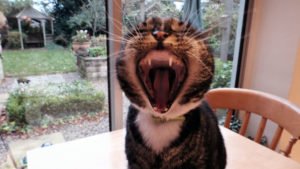I’m increasingly noticing a trend where advertisers, posters, promoters and artists are engaging in excessive use of superlatives and exaggerations online
A superlative has been described as
“The form of an adjective or adverb that expresses that the thing or person being described has more of the particular quality than anything or anyone else of the same type”
In communications the adjective is listed first, followed by the comparative adjective and then the superlative adjective:
Big – bigger – biggest.
Brave – braver – bravest.
Bright – brighter – brightest.
Of course with The Advertising Standards Authority advertisers can be held to account for deliberately misleading the public with claims. CAP advice in relating to ASA is
“Superlative claims may be either fully superlative, for example, “Superior Cleaning Compared To An Ordinary Toothbrush” (Colgate-Palmolive, 18 July 2001) and “Greater cleaning efficiency” (Argos Ltd, 21 April 2004) or top-parity claims, for example, “Nothing washes whiter than X”. Either way, marketers will be expected to substantiate the truthfulness and accuracy of a superlative claim and will need to hold documentary evidence”
Donald Trump
Of course some misleading claims are easy to spot when people makes claims about “size”. The most recent USA presidential inauguration claim is a great example of this and the USA president continues to use exaggerations and superlatives on an almost daily basis on Twitter. As The Washington Times noted
“Nothing is ever merely “good,” or “fortunate.” No appointment is merely “outstanding.” Everything is “fantastic,” or “terrific,” and every man or woman he appoints to a government position, even if just two shades above mediocre, is “tremendous.” The Donald never met a superlative he didn’t like, himself as the ultimate superlative most of all”
Aside from any political considerations, in my view this is not a smart way to go as after a while there’s just way too much noise and usually people tune out…
Exaggerations online
On social media in particular there seems an increasing tendency to use terms like “awesome” and “unique” There’s of course nothing wrong with such terms and some experiences can indeed be awesome and unique, BUT when almost everything is described in this way the effect is to dilute l impact for the reader. This dilution effect is even more when the terms are used repeatedly in the same paragraph of copy. In my experience this can happen for a number of reasons.
Sometimes the person writing copy or posting has a limited favorite vocabulary and doesn’t fully appreciate the effect of repeatedly posting the same terms. In other instances the individual is so excited in what they are describing they forget to think about how its being perceived by a third party.
The changing face of marketing and less is often more
The world of marketing is changing at some rate. Traditional exaggerated claims are increasingly viewed with caution by customers and of course social media feedback has led to a new form of scrutiny. Similarly claims that suggest massive priced drops like “Normal price is X, but now the price is Y (huge discount) and “Last few items available!” often don’t have the same impact as in days gone by. My own view is that businesses need to be more transparent in their dealings and increasingly focus on what they have to offer is genuinely unique. Some businesses adopt a scatter gun approach to marketing, so customers become overwhelmed with choice.
Often the business owner or promoter can be so personally invested in their business or event, that they can’t resist this unhelpful level of hype. Sometimes it can create short term attention, BUT its never great for developing long term marketing trust with clients. Often the person writing copy is far too hyperactive and tries to be all things to all people. More often than not they lose customer confidence by this approach and would do far better by pacing how they market and focus more specifically on USPs.

